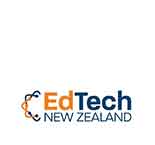This is the year for EdTech. Now more than ever there is the opportunity and the imperative to reshape how we deliver education. While the New Zealand education sector has responded well to the current challenges, it also saddens me a little to think that it took a world-changing event to trigger change.
Globally, according to UNESCO, at its peak in March, around 1.6 billion learners have been impacted by the disruption. Within the EdTech sector, we’re seeing all of the old rules and assumptions go out the window, pretty much zero onboarding rules and some great support initiatives from Kiwi EdTech companies. Companies in Dunedin, Hamilton and Auckland are providing significant digital infrastructure in the US, China, Australia and Latin America for remote learning, and the content to help students around the world to learn in this time of disruption.
I’ve also had a lot of feedback from the EdTechNZ leadership team and most of it can be seen in a positive light. The Ministry of Education has responded well in putting in place a number of measures, including a range of supports to help communities prepare for online learning. Two dedicated websites, Learning from Home and Ki te Ao Marama were established to provide access to resources and information for schools, Kura, early learning centres and whānau.
There have been the obvious challenges around equity. For many, access to learning resources, internet connections and devices was (and remains) paramount. The Ministry continues to roll out support in all three of these areas and as we shifted to level 3 and now to level 2, schools have ramped up their own supply of learning resources to whānau.
The Mind Lab has also assisted teachers with guidance for online and blended learning, technical supports, experience sharing at its website teaching at a distance support.
Innovation is born of necessity. Our ability to envision new ways of operating will be crucial to not only weathering the crisis but also being well placed to thrive in whatever becomes the new normal. Great leaders know to overturn assumptions, which in turn creates space to innovate.
There is no template for how to make this work. What you do now will profoundly influence the future success of your organisations in tomorrow’s changed world. If you do it right, it will provide a foundation for improved agility and it will get you closer to your stakeholders, whether they are customers, students, your staff and your partners etc.
With distance learning becoming part of the new normal for at least the foreseeable future, and quite possibly indefinitely, we will need to rethink the learning experience. An important part of our rethinking needs to ensure that Education pedagogy should be the lead and the technology must support that. Many questions need answering, for example, how will you create personal human-like interactions with your students? How will you keep your students engaged and motivated? What does classroom collaboration look like under a distance model? What about hands on training, how can we deliver this remotely? Augmented and virtual reality are obvious candidates for that, and in one example, Case Western Reserve University recently shipped 200 holo lenses to their medical students to replace cadavers in anatomy classes. The first class was successfully completed in March 2020 – food for thought.
Ask yourself: “What are the bold actions that I’ve hesitated to pursue in the past, even knowing that they would eventually be required?” Now is the time to courageously pursue the answer!
“Education is the passport to the future, for tomorrow belongs to those who prepare for it today.”
– Malcolm X
Shane Kerr
Chair






